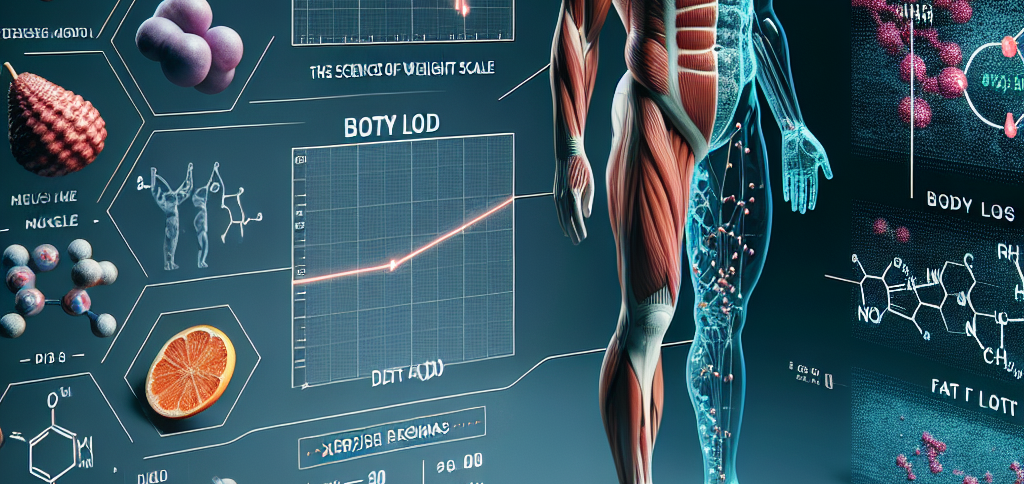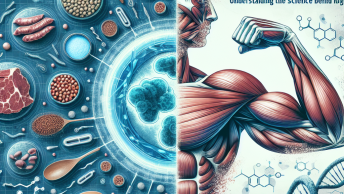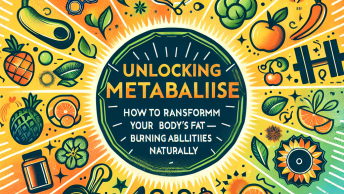When it comes to fitness, health enthusiasts often throw the terms fat loss and weight loss around as if they are interchangeable. However, as anyone serious about optimizing their body composition should know, they are distinctly different concepts. Understanding these differences can play a pivotal role in achieving your health and fitness goals. Here’s a breakdown of fat loss versus weight loss to help demystify the topic and guide you in your journey.
1. Defining Weight Loss vs. Fat Loss
Weight Loss: This term refers to a decrease in overall body weight, which can be influenced by a range of factors including fat, muscle, water, and even bone density. When you step on a scale, the number reflects all of these components combined.
Fat Loss: In contrast, fat loss specifically refers to the reduction of adipose tissue (body fat). This is typically the main goal for many individuals, as losing fat while preserving muscle leads to a leaner and healthier physique.
2. Understanding Body Composition
Achieving a healthy body composition is more important than merely focusing on the numbers displayed on the scale. Body composition is the ratio of fat to lean mass (muscles, bones, organs, etc.) in your body. A person could weigh less than another but have a higher body fat percentage. Hence, focusing on fat loss rather than weight loss often yields better results in terms of appearance and health.
3. How Fat Loss and Weight Loss Occur
Understanding the physiological processes behind each can help you target your approach:
-
Weight Loss: Can occur through various approaches including calorie deficits, diuretics, or losing muscle mass. It’s easy to shed weight quickly, but doing so often leads to a loss of lean muscle mass, which can affect metabolism negatively.
- Fat Loss: Requires a more structured approach that includes a diet rich in nutrients and regular exercise. By creating a sustainable calorie deficit while focusing on preserving or increasing muscle through resistance training, fat loss can occur alongside minimal impact on lean muscle.
4. The Role of Diet
Your dietary choices play a critical role in determining whether you experience fat loss or weight loss.
-
Caloric Deficit for Weight Loss: Many weight loss strategies focus solely on caloric intake. When individuals drastically reduce their calories, they might lose weight quickly; however, this is often not sustainable and can lead to muscle or nutrient loss.
- Nutrient-Rich Diet for Fat Loss: Aiming for fat loss generally requires a well-rounded diet high in protein, healthy fats, and complex carbohydrates. This not only aids in losing fat but also helps preserve lean muscle mass while keeping your body nourished.
5. The Importance of Exercise
Exercise can significantly affect both weight loss and fat loss, but the strategies will differ depending on your goal:
-
Cardio for Weight Loss: Some may turn to excessive cardio to lose weight quickly. While it can burn calories, relying solely on cardio may lead to muscle loss, making it harder to maintain a healthy weight long-term.
- Strength Training for Fat Loss: Resistance training is foundational in a fat loss regimen. By building muscle, you increase your resting metabolic rate (which means you burn more calories at rest) and improve body composition.
6. Tracking Progress
When pursuing goals, many individuals rely on scales, but they have limitations in assessing true progress.
-
Weight Scale Shortcomings: The scale doesn’t differentiate between fat, muscle, or water weight. A person might weigh the same even if they lose fat and build muscle.
- Better Metrics for Fat Loss: Using measurements (waist, hips), body fat percentage assessments, or how clothes fit can provide more insight into your progress with fat loss.
7. The Psychological Aspect
The mind plays a significant role in achieving fitness goals, which can vary depending on whether you prioritize fat loss or weight loss.
-
Weight Loss Mentality: This approach may lead to short-lived fixes, quick results, and restrictive dieting, often resulting in a negative relationship with food and exercise.
- Fat Loss Mindset: Focusing on body composition encourages a healthier lifestyle and fosters a positive relationship with nutrition and fitness. It promotes sustainability and long-term healthy habits.
8. Sustainability and Long-Term Goals
Sustainability is vital in any fitness journey.
-
Temporary Weight Loss: Many quick-fix diets designed for weight loss can lead to yo-yo dieting, where you gain back lost weight just as quickly as it was shed, often leading to frustration and disillusionment.
- Lifelong Fat Loss: Strategies aimed at fat loss foster healthy habits that can be maintained over time. By establishing a routine that includes balanced eating, effective training, and lifestyle changes, individuals are more likely to sustain their results long-term.
9. Finding the Right Resources
Having the right resources can significantly impact your success. For those interested in furthering their understanding of these concepts or seeking structured guidance, various programs and tools are available. Click Here to learn more about effective methods and strategies that prioritize fat loss and healthy living.
10. Conclusion
In summary, the distinction between fat loss and weight loss cannot be overstated. While shedding pounds may be a tempting goal, focusing on fat loss can yield better results in terms of body composition and overall health. By shifting the focus to sustaining a healthy lifestyle, incorporating strength training, and maintaining a balanced diet, you can work towards the physique and health outcomes you desire. Understanding these principles lays the foundation for lifelong wellness.
By grasping the nuances of fat loss versus weight loss, you take a significant step toward optimizing your results and enhancing your quality of life. Remember, it’s not just about how much you weigh but how you feel and how your body functions!






